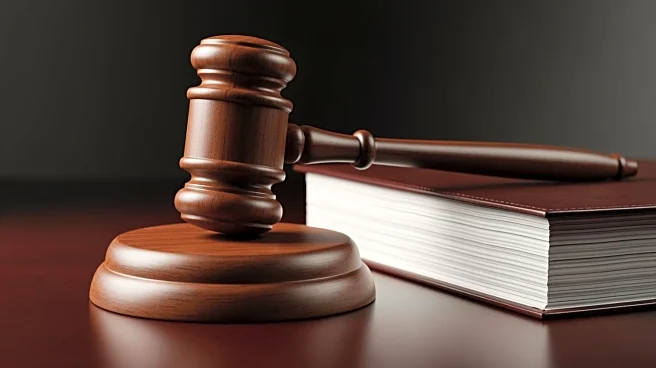What's Happening?
The Justice Department has renewed its request to federal judges in New York to unseal grand jury transcripts related to the investigations of Jeffrey Epstein and Ghislaine Maxwell. This follows the passage of the Epstein Files Transparency Act, which
requires the DOJ to release these materials within 30 days. The Act allows for exceptions to protect personal information and ongoing investigations. The DOJ's filing argues that the Act encompasses grand jury materials, highlighting Congress's awareness of the investigation's scope. Previous requests to unseal these records were denied due to grand jury secrecy precedents. The DOJ is seeking an expedited ruling due to the 30-day deadline imposed by the Act.
Why It's Important?
The renewed request underscores the DOJ's commitment to transparency in the Epstein and Maxwell cases, which have garnered significant public interest. The release of grand jury materials could provide new insights into the criminal activities and networks associated with Epstein, potentially impacting ongoing investigations and legal proceedings. The Act's mandate for transparency reflects a broader societal demand for accountability in cases involving influential figures. The DOJ's efforts to comply with the Act may influence future legislative and judicial approaches to similar high-profile cases.
What's Next?
Judges are expected to make decisions on the DOJ's request soon, with deadlines set for responses from victims and Maxwell. The DOJ will need to ensure that any released materials are appropriately redacted to protect sensitive information. The outcome of this request could affect ongoing investigations and legal actions related to Epstein and Maxwell. Stakeholders, including victims and legal representatives, will likely continue to monitor developments closely, as the release of these materials could have significant implications for future cases.
















